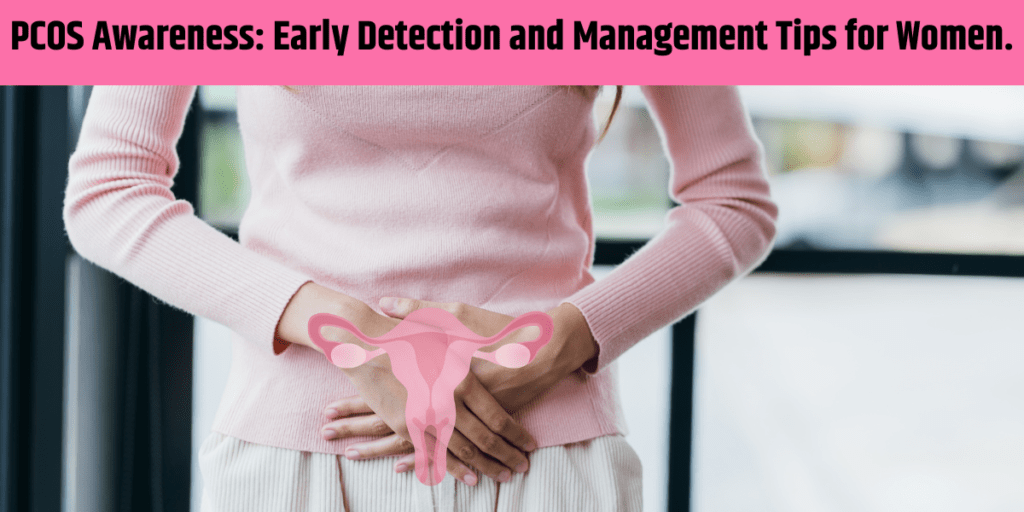PCOS Awareness: Early Detection and Management Tips for Women.
Polycystic Ovary Syndrome (PCOS) is a common hormonal disorder that affects millions of women worldwide, often going undiagnosed or misunderstood. It can lead to a variety of health issues, including irregular periods, fertility challenges, weight gain, and increased risk of long-term conditions like diabetes and heart disease. Early detection and proactive management of PCOS are crucial for minimizing these risks and improving quality of life.
What is PCOS and how does it affect women?
PCOS, or Polycystic Ovary Syndrome, is a hormonal imbalance that affects a woman’s ovaries and reproductive system. Dr. Pushpa Soni, an experienced gynecologist in Kalyani Nagar, Pune, explains that PCOS can lead to irregular menstrual cycles, high levels of male hormones, and cysts on the ovaries. These symptoms can affect fertility, cause weight gain, and lead to long-term health problems like diabetes and heart disease.
What are the early signs of PCOS?
The early signs of PCOS may include:
Irregular periods or no periods at all
Excessive hair growth on the face, chest, or back (hirsutism)
Acne or oily skin
Weight gain, especially around the abdomen
Thinning hair on the scalp
Difficulty conceiving
If you notice these symptoms, it’s important to consult a healthcare provider for a diagnosis.
How is PCOS diagnosed?
PCOS is diagnosed through a combination of medical history, physical examination, blood tests, and ultrasound imaging. Doctors may check for high levels of androgens, insulin resistance, or small cysts on the ovaries. A diagnosis is usually made if a woman has two out of the three main criteria: irregular periods, excess androgens, or cysts on the ovaries.
What causes PCOS?
The exact cause of PCOS is unknown, but factors like genetics, insulin resistance, and inflammation play a significant role. Insulin resistance, where the body’s cells don’t respond to insulin properly, is particularly common in women with PCOS, leading to weight gain and an increased risk of type 2 diabetes.
Is PCOS a common condition?
Yes, PCOS is one of the most common endocrine disorders in women, affecting up to 10% of women of reproductive age worldwide. Despite its prevalence, many women remain undiagnosed due to the varying symptoms and lack of awareness.
Can PCOS be managed naturally?
Yes, while there’s no cure for PCOS, it can be managed effectively through lifestyle changes. Key management tips include:
Healthy Diet: Focus on a low-glycemic index (GI) diet rich in whole grains, vegetables, and lean protein.
Regular Exercise: Physical activity can help improve insulin sensitivity and promote weight loss.
Weight Management: Losing even a small amount of weight (5-10% of body weight) can help regulate periods and improve fertility.
Stress Management: Practices like yoga, meditation, or mindfulness can help manage stress, which may exacerbate PCOS symptoms.
What medical treatments are available for PCOS?
Medical treatment for PCOS often includes hormonal birth control to regulate periods, anti-androgen medications to reduce male hormone levels, and medications like metformin to improve insulin sensitivity. Fertility treatments, including ovulation-inducing drugs, may be recommended for women trying to conceive.
How does PCOS affect fertility?
PCOS is one of the leading causes of infertility in women because it can interfere with ovulation. Women with PCOS may ovulate less frequently, making it more difficult to conceive. However, with proper management and treatment, many women with PCOS can successfully become pregnant.
Can PCOS lead to long-term health problems?
Yes, if left untreated, PCOS can increase the risk of several long-term health conditions, including:
Type 2 diabetes
High blood pressure
Heart disease
Endometrial cancer
Sleep apnea
Regular monitoring and lifestyle adjustments are crucial to preventing these complications.
What is the role of insulin resistance in PCOS?
Insulin resistance plays a significant role in PCOS. When cells don’t respond properly to insulin, the body produces more insulin, which can trigger an increase in androgen production. This leads to symptoms like irregular periods, acne, and weight gain. Managing insulin resistance through diet, exercise, and medication is a key aspect of PCOS treatment.
Can PCOS symptoms improve after menopause?
For some women, the symptoms of PCOS, particularly related to menstruation, may improve after menopause. However, the risk of complications like diabetes, heart disease, and metabolic syndrome may remain, making it important to continue managing PCOS even after reproductive years.
How important is early detection of PCOS?
Early detection of PCOS is critical for preventing complications such as infertility, type 2 diabetes, and cardiovascular issues. Women who suspect they may have PCOS should consult their healthcare provider, such as Dr. Pushpa Soni, a gynecologist in Kalyani Nagar, Pune, for timely diagnosis and intervention.
Raising awareness about PCOS is essential for ensuring women can detect the condition early and manage their symptoms effectively. By understanding the signs, causes, and treatments, women with PCOS can take control of their health and reduce the risk of long-term complications. If you think you may have PCOS, consult Dr. Pushpa Soni, an experienced gynecologist in Kalyani Nagar ,Pune, for guidance on managing this condition.

